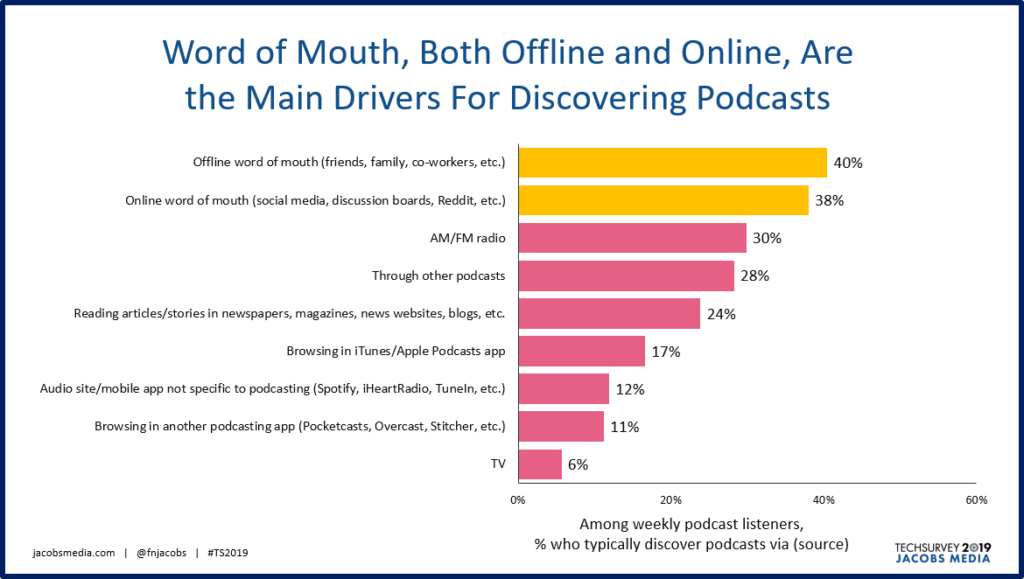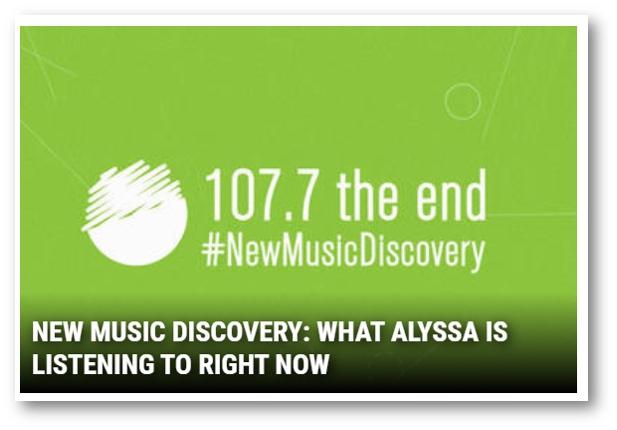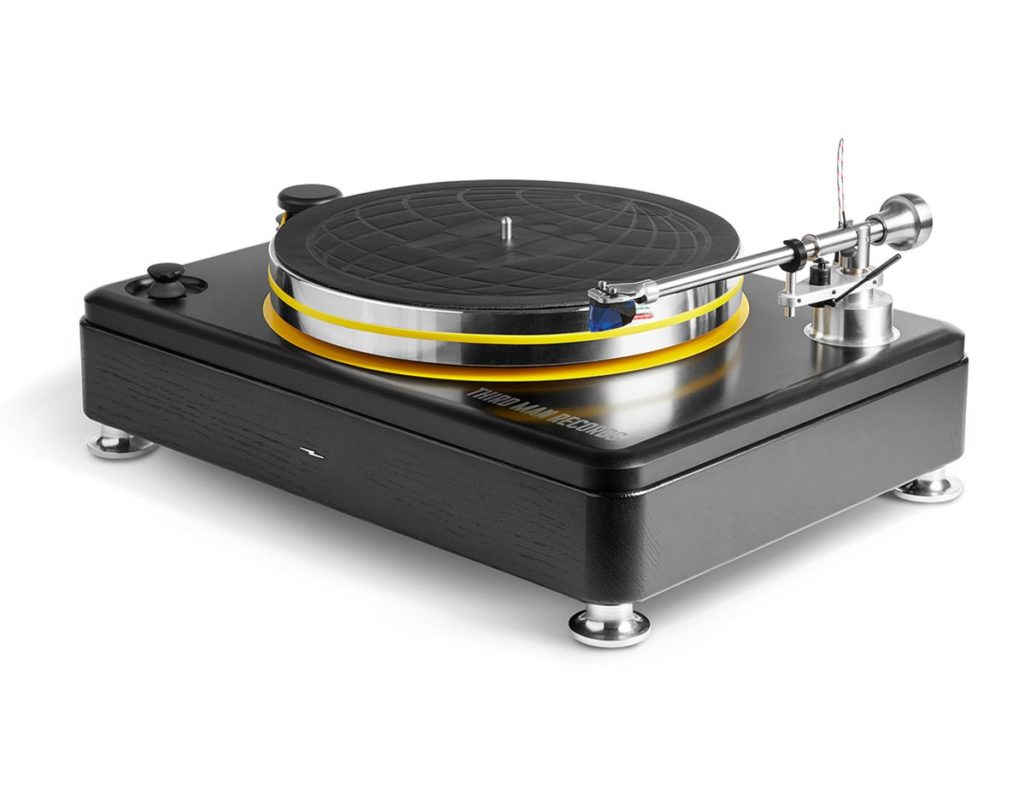
Exactly four years ago, we weren’t exactly talking about Artificial Intelligence. At our CES tours in Vegas, we would occasionally hear this question from one of our guests:
“So where’s the A.I.?”
Well, there’s no A.I. exhibit at CES because as we now know, this technology isn’t a gadget – it’s in the air, now a part of so many innovations, but nothing you can take home from Best Buy. Four years later, much of the conversation has been all about Artificial Intelligence – how it will change our lives, our careers, and even our elections. And let’s not forget about A.I.’s impact on radio. We’ve debated the role of the radio personality in an A.I. world. It remains to be seen how broadcasters will come to use it.
Back in 2019, we were instead talking about algorithms – their ability to predict the next song and know precisely what we want to hear. As many would agree, most algorithms fall short, often “programming” sloppy segues and transitions, throwing in songs where they seemingly don’t belong. And as I wrote four years ago, radio has the opportunity to utilize the talent of its personalities to create a better listening experience than a robotic brain in a jar.
But as you read this old post, you might think old “rose colored glasses Fred” was being more hopeful than logical about the continuing role of the on-air radio curator. In fact, of the five personalities I highlighted in this post, only two are still on the air at their home stations. The other two have mostly called it a career, while another has moved across the country. And that begs the question of who can replace bigger-than-life radio personalities who could lead you on a journey through a magical listening experience? There are few waiting in the wings. And with fewer slots on so many stations, this doesn’t feel sustainable.
And yet, some are still out there. Jim Ladd is still plugging away on Monday nights on SXM, but you have to wonder why they limit him to just one show a week. Pierre Robert continues to charm Philadelphians, Andy Langer is still a force in Austin, and Christy Taylor has taken her alternative skills and musical passion to Seattle. Whether there will be a next generation of truly gifted personalities with the freedom to blow us away with their musical knowledge, taste, and pop culture sensibilities seems very much up in the air.
Still to my ear, no algorithm can come close. – FJ
In recent years, there’s been a lot of talk about Artificial Intelligence, and specifically, algorithms that make our media lives more streamlined and personalized by learning our tastes and our habits.
We’ve all gotten used to having products, services, and media choices introduced to us – based on our past behavior. Whether it’s watching video streaming content on Netflix, ordering another Margaret Atwood book on Amazon, or dining at another restaurant on Open Table, there’s no shortage of machined learned recommendations trying to induce us to buy more stuff.
When it works, that is.
Because so often, those algorithms are flawed. They work – sometimes. But how often does a recommendation fall a little short – or be way off the mark – reminding us that AI technology still has a long way to go?
When my daughter was in high school, we started buying her books on Amazon. And that’s when I started getting “inspired by your shopping trends” recommendations for books on French literature, sociology, and world history.
But it got worse with Pandora. I’d select a favorite song like “Reason To Believe” by Rod Stewart, and instead of getting served up songs with a Faces influence, I instead started hearing sappy ballads by all sorts of artists. We’ve all been there, and sometimes, algorithms actually seem to get worse over time.
A recent story in the New York Times – “Personalization Has Failed Us” – by Thorin Klosowski took on this gnarly tech topic.
He calls them “recommendation algorithms” or “curation algorithms” – but they are only using our own selections to build their content suggestions. The whole purpose of discovery – movies, books, music, TV series – is to get turned on to content you might not have found yourself.
And yet, when we ask about recommendations of different types of content – especially podcasts, we find the advice we get from other people – in person or online – usually trump machine-inspired fringe content that just fails to make the cut.

Too often, algorithms fall short because they make false assumptions about our tastes. As Klosowski accurately points out, “You may love the Beatles but hate the Rolling Stones.” But in most playlist-based recommendation engines, the algorithmic assumption is that you like both bands because of their obvious similarities in both proximity and popularity.
Personal taste isn’t just complex – it’s personal. We all have different histories, pop culture arcs, and experiences, depending on where we’ve lived, where we were educated, who we lived with, and how we are wired.
That’s why when you find a friend who has great taste in movies – that is, she has an established track record of finding those indie films you’ve never heard of, but end up enjoying – you keep going back.
Musically, for example, when someone knows you and they are blessed with a good ear, you come to depend on their taste in trends, albums, and new artists. Isn’t that where a radio station and its trusted, credible personalities come into play?
That came to mind recently while reading a thought piece, simply titled “Human vs. Algorithm Recommendations” in Medium by Craig Snyder. Here are some of his observations about his long-term relationship with music:
I miss listening to stations at record shops.
I miss being able to have a shared radio experience with friends.
I miss new release listening parties that people actually show up to.
I miss having 3 opening bands and showing up early to see the bill.
I miss having a local digital music library that I can share with friends.
I miss my friends having a local digital music library that they can share with me.
Most of all, I miss human recommendations.
That last line got me because it speaks to the way many people grew up – listening to influential radio stations and the DJs that knew their music. We didn’t refer to it as “curation” back then, but that’s precisely what it was.
Now, not every station today owns a strong music brand, or personalities that matter, like Pat Martin (KRXQ), Bob Stroud (WDRV), Pierre Robert (WMMR), Andy Langer (Austin City Limits Radio), or Christy Taylor (Go 96.3).
But when  you do, leaning into their musical taste, knowledge, and credibility makes all the sense in the world. Isn’t that a big reason why they’re on your staff in the first place?
you do, leaning into their musical taste, knowledge, and credibility makes all the sense in the world. Isn’t that a big reason why they’re on your staff in the first place?
Sure, they’re all great on the air, but it’s hard to show your stuff in a :60 break. But on your other assets – your website, social media pages, and other online megaphones – their musical tastes can be showcased, and even amplified.
Many stations shy away from Spotify for competitive reasons, but the fact is your best personalities building playlists on that platform, dynamically changing over time, can be a unique way to connect with music fans in your market – and beyond.
Using web tools to extend brands is a key to developing more influence and cred. It’s the way for stations and knowledgeable personalities to expand their circles, grow their audiences, and make their marketing opportunities more valuable.
While algorithms may get better over time, you have to believe many consumers already take them with a grain of digital salt. They have failed so many times, most don’t make decisions on them or taken them all that seriously.

But a trusted, credible local radio host?
A whole different story. And smart radio broadcasters can leverage their time in grade, their local chops, and their expertise to help re-establish a station in the music world.
Craig Snyder ends his commentary with this charge:
“We need to figure out how to activate fans again. There’s no excitement or build-up for releases any more. We’re not making recommendations to friends. We’re overly reliant on algorithms and while they are good, we’re missing the human element. We’re missing an opportunity to connect. We’re eliminating the social piece from music and no – social media isn’t a replacement.”
So, what’s on YOUR turntable?
Many thanks to Paul McLane and Dave Beasing, both of whom inspired this post.
- Media And Technology In 2025: Believe It Or Not! - April 18, 2025
- In Radio, You Just Never Know - April 17, 2025
- The Secret To Making A Great Podcast (And Great Radio) - April 16, 2025





Just a few observations on algorithms from an old radio guy that pays attention. My mother in law was diagnosed with stage 4 lung cancer, so I did some online research into what to expect, prognosis, treatments etc….my social feeds suddenly were full of ads targeting me with a subject that I didn’t necessarily need inundating my Facebook and Twitter feeds, and it lasted well until after she had passed away. That to me was a major fail of algorithmic intelligence. Example 2, I had an issue with the evaporative emissions System on my vehicle, so I did some online shopping to find the best deal on a part for my car….four weeks AFTER the repair, and I am still getting targeted ads and posts related to the already repaired system. BIG fail. I could go on, but these are the daily occurrences that highlight the flaws of how these things work. Two weeks after I research and order an ugly sweater for a Christmas party that happened last week, is not when I need to be seeing ads for Ugly Christmas sweaters Mr. Robot ad guy!
It makes you think before you “search.” The residue of just researching a topic or product can annoyingly last for days.
Grumpy and Fred, true! BUT, I’ve also found if I need something, but not immediately, just go shopping around for it. Then stop and go back to your normal social media life while waiting for the 30, 40 and 50 percent offers to come flooding into your feed!
Oh those algorithms, as a between opportunities programmer, I received an alert from Indeed with a position I’d be perfect for.
A Jet Ski instructor. Well I guess after all my years in the oldies formats I did play quite a number of Beach Boys songs.
Anytime I get a “dear Frederick” letter or email or text I can’t get to “delete” fast enough.
Expecting computers to have taste is like expecting spreadsheets to be able to quantify “talent.” I expect, however, that the “entertainment” portion of the “entertainment business” will continue to lose out to the “business” side of the equation. Big, overleveraged corporations will continue trying to cut their way to prosperity while using radio support and promote their other ventures.
The trajectory, as you point out, is obvious. It’s all the more reason why we should appreciate and support those fighting to do radio “the right way.”
Even though KRXq is now an automated jukebox with a liner jock and a show most likely aiming to be syndicated, there’s still hope. There are about 20 of us that work at the current incarnation of Sacramento‘s k-zap 93.3, I get the privilege of working with the elders who were a part of the format 55 years ago when it debuted. I am 34, and I love classic rock as much as the next guy, but I also love the new stones, new pretenders, new Paul Rogers, new Van Morrison, I could go on. I am a fill in talent and it’s an honor to work my way up the ladder. I’d rather do that on a free station, than get paid next to nothing to lie to listeners and to basically ignore the local needs of this town. if I can read copy and independently run a Station module and go to local events, as a totally blind person, surely the rest of the radio industry can figure this out, unless greed is involved, of course. Anyway, cheese bags, that’s my show, got to go, see you tomorrow. That last line is actually a commercial sign off here, ha ha ha, sad. PS, I don’t have a secret cabin in Tahoe, or a piano, even though that would be nice.
I listened to KZAP back in the day, glad to know it’s still there in some form.
Local live talent–all utterly consonant elements of great radio. Canned talent/algorithm–not. Follow your heart or follow the money, two different courses easily discerned. Support the former, screw the latter.
I loved consulting Sacto radio during what are now “the good old days.” Curtiss Johonson, Jim Fox, Larry Sharp, Brian Lopez and other were able leaders who ran their stations the right way. We had great air talent throughout the entire day on botk KRXQ and The Eagle. Both staations fought hard to own the streets, entertain the community, and serve. Thanks for telling us about your currentt efforts, Brandon.